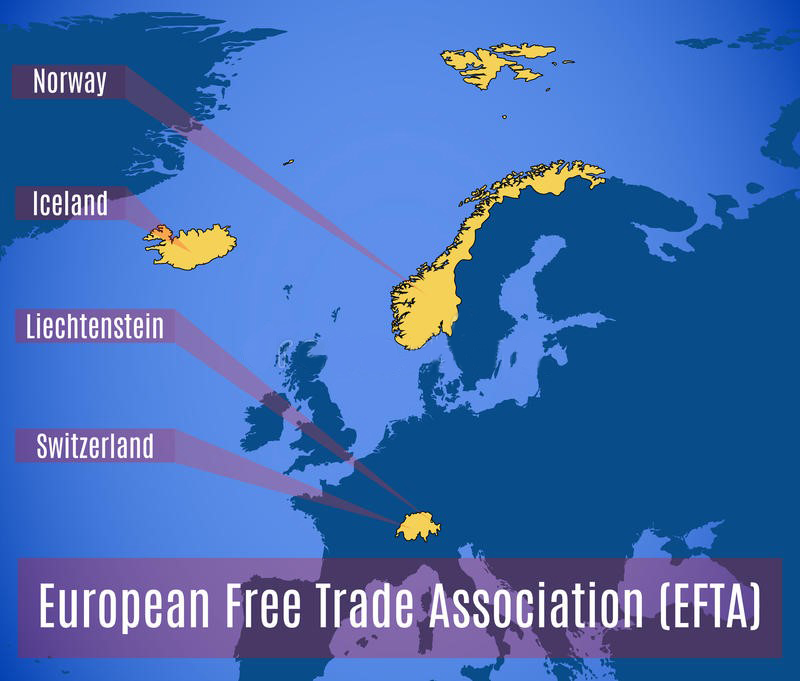Context:
Switzerland and Liechtenstein, two members of the European Free Trade Association (EFTA), are intensifying efforts to secure a Bilateral Investment Treaty (BIT) with India.
· This push follows a trade agreement signed by the EFTA and India in March 2024, which aims for a significant $100 billion investment over the next 15 years.
Why Switzerland and Liechtenstein Want a BIT with India
1. Tax Issues and the Nestlé Case
o In December 2024, Switzerland suspended the MFN clause in the Double Taxation Avoidance Agreement (DTAA) of 1994.
o India’s Supreme Court ruled that the DTAA could not be enforced unless officially notified under the Income Tax Act, leading to higher taxes on Swiss firms like Nestlé.
o This raised concerns for Swiss investors, making a BIT essential to protect their investments.
2. India’s Cancellation of Old BITs
o India canceled its old BITs from 1993 after losing several international legal disputes involving huge sums.
o These BITs favored India’s control over investor rights.
o Without BITs, foreign investors lacked legal protection, prompting Switzerland and Liechtenstein to push for a new agreement.
3. India’s Changing Investment Rules
o India’s 2016 BIT model required investors to exhaust all legal options in India before seeking international arbitration.
o Many Western trade partners found this rule too restrictive and urged India to adopt a more investor-friendly approach.
India’s Shift Towards a More Investor-Friendly BIT
- Mentioned in the Union Budget: The government has acknowledged investor concerns and regulatory burdens in its economic policies.
- Ongoing Negotiations: India is actively discussing BITs with the UK and the European Union, indicating a broader shift toward liberalized investment policies.
- Learning from the UAE Treaty: India’s recent BIT with the UAE includes:
- Protections for foreign portfolio investors.
- Entity-based safeguards.
- Balanced investor-state dispute resolution mechanisms.
How a BIT with Switzerland and Liechtenstein Can Benefit India
1. Boosting Foreign Investment
o A Bilateral Investment Treaty (BIT) would increase investor confidence, leading to more long-term investments in India.
o Sectors like pharmaceuticals, precision engineering, and financial services would benefit from stronger legal protections.
2. Following Global Trade Standards
o By updating its investment rules, India aligns with international best practices, making it a more attractive place for foreign investors.
o Issues like Switzerland’s withdrawal of Most-Favoured-Nation (MFN) status could be resolved through structured BIT talks.
3. Economic and Strategic Advantages
o A strong BIT will support India’s Make in India program and infrastructure projects.
o Clear and stable investment policies will help India attract more trade deals and global partnerships.
Conclusion
The demand for a Bilateral Investment Treaty (BIT) between India and Switzerland-Liechtenstein is an important step in India’s changing trade and investment policies. India is trying to protect its own interests while also ensuring foreign investors feel secure. If successful, this BIT could serve as a model for future investment agreements with other countries.
A well-planned BIT would strengthen India’s economic ties with EFTA, making it a more attractive and trustworthy place for foreign investments. This, in turn, would boost economic growth and global trade partnerships.








